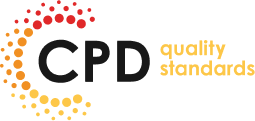The decision to pursue a master’s degree is critical, with broad consequences in pursuing higher education. This academic pursuit transcends the limitations of a conventional education; it is a transforming journey that profoundly impacts one’s career trajectory and personal development.
Making the correct postgraduate degree program choice is more than just learning; it’s about defining a future that fits one’s goals and desires. Making an informed selection is crucial since it is the cornerstone of a fruitful and significant career and personal life.
How to Choose the Right Postgraduate Degree: A Few Tips
If you are considering pursuing a postgraduate degree but are unsure which course to pursue, here are a few tips to help you make the most suitable choice.
Self-Assessment
Introspection and self-evaluation are critical first steps in selecting the best master’s degree. This requires carefully examining one’s aptitudes, hobbies, and passions. To choose a curriculum that matches a student’s skills and resonates with their deepest desires, it is essential to understand what motivates and drives a particular person.
This process also includes a sincere assessment of one’s abilities, which recognizes both one’s strengths and places for development. Long-term work goals and aspirations must also be considered; visualizing the intended professional trajectory offers a guide for the kind of master’s degree that will be most helpful.
Researching Career Trajectories
Explore the landscape of numerous industries and job marketplaces to select the best master’s degree. A thorough examination of the trends and demands in many industries provides insightful information. Customizing academic endeavours to meet these requirements requires understanding the changing dynamics of the labour market.
Prospective students can make well-informed choices by researching the requirements and opportunities of various master’s degrees. Additionally, considering new trends and employment prospects guarantees that the chosen curriculum satisfies present demands and prepares participants for the chances and challenges that await them in their chosen area. Analysing career paths is similar to navigating a dynamic environment where knowledge of the present and information about the future is crucial.
Program Accreditation and Reputation
When choosing a master’s program, confirming that it is properly accredited is crucial. A program’s accreditation acts as a quality assurance indicator, showing that it satisfies high criteria. Equally important is researching the standing of academic institutions that offer the desired program.
Investigating the university’s historical reputation, the academic community’s acceptance of its programs, and the accomplishments of its alumni are all necessary for this. A further degree of assurance is added by considering faculty knowledge and industrial relationships. A faculty member with extensive networks and expertise can significantly improve the educational experience and provide access to worthwhile career prospects.
Flexibility and Program Structure
A master’s program’s structure and flexibility are crucial, especially for students juggling demanding schedules or looking to balance jobs and study. Understanding whether the program provides part-time, online, or hybrid options is necessary to evaluate the program’s flexibility.
This flexibility is essential for meeting the various demands of students. Evaluating the curriculum, considering both the theoretical and practical facets, is equally necessary. A well-rounded curriculum guarantees that graduates possess theoretical knowledge and applicable practical skills in their industry.
Financial Considerations
Making decisions requires careful consideration of the cost of a master’s degree and the costs involved. Financial factors include living expenses, material prices, and possibly hidden fees, in addition to tuition rates. Financial planning involves looking into scholarship, grant, and assistantship opportunities. Scholarships and grants can significantly reduce the financial load, and assistantship programs may provide financial assistance and valuable practical experience.
Weighing the prospective return on investment is crucial because it enables people to make decisions that reflect their perception of the value of the education they will receive and the chances it will open up for them in their professional lives. Essentially, financial factors make sure that earning a master’s degree is in line with both financial obligations and career goals.
Alumni Success Stories
Investigating graduates’ achievements from a particular master’s program might give you priceless insights into the potential value of education. This calls for an extensive investigation into program alumni’s accomplishments and professional paths. Getting first-hand stories and talking to current and former graduates will help you better understand the program’s effectiveness.
Talking to people who have taken the same academic road as you will give you perspectives beyond what is written in pamphlets and government publications. Prospective students might better anticipate their post-graduation options by being aware of the varied experiences of alumni.
Networking and Industry Connections
The ability of a master’s program to offer not only academic knowledge but also a strong network of relationships in the professional world is frequently its greatest strength. Prospective students should evaluate the program’s linkages to industry, determining how closely it works with companies, groups, and experts in the sector. It is essential to have networking opportunities, whether from events, seminars, or established alumni networks.
It’s also important to consider the value of industrial relationships, co-op programs, and internships. These real-world experiences not only improve learning but also open up possibilities for employment after graduation. It is ensured that the academic journey is not isolated but instead included in the larger professional environment by selecting a curriculum with vital networking components.
Location and Campus Culture
The institution’s geographic location can considerably impact the experience of earning a master’s degree. Considering elements like closeness to industry centres, cultural attractions, and future job markets is crucial. Examining the resources and campus culture goes beyond this and adds another level of thought.
An academic experience can be more well-rounded if libraries, research institutes, and extracurricular activities are accessible. Evaluating the possibility of networking and collaboration on campus is crucial, including involvement in clubs, groups, and events. The campus environment impacts how students pursue their master’s degrees in terms of both their academic path and general way of life.
Conclusion
In conclusion, picking the best master’s degree involves making several complex decisions that must be carefully considered. Each component, from self-evaluation and job exploration to financial planning and program flexibility, adds to the overall fit of the chosen path. Learning university culture, evaluating networking possibilities, and researching alumni success stories contribute to learning beyond the academic curriculum.
Prospective students must approach the decision-making process with careful research and a clear grasp of their personal and professional ambitions as they embark on this journey. A master’s degree program is not just an academic activity but also a transforming journey that can influence one’s career and personal development.


![]() 7 minutes
7 minutes
































